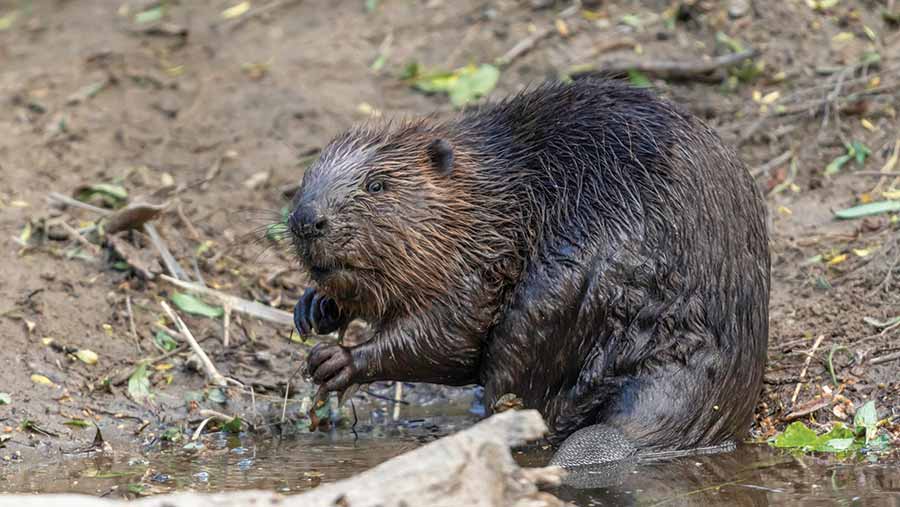Opinion: Beavers spark guffaws – and confusion
 © Elliot/Adobe Stock
© Elliot/Adobe Stock For readers of a certain age, any talk of “beavers” will cause an involuntary guffaw as it conjures up the memory of Leslie Nielsen and Priscilla Presley’s innocent innuendo in a scene from the 1989 hit comedy Naked Gun.
So it was that, suppressing a smirk, I headed to the 1,200ha Knepp Castle estate in West Sussex to look at beavers, courtesy of an invitation from the NFU and Charlie Burrell, who owns and runs the estate with his partner, Isabella Tree.
See also: Opinion – I’ve come to the conclusion I’m incurably grumpy
Charlie and Isabella are famous for their rewilding project at Knepp. In 2018, Isabella published Wilding – the return of nature to a British farm, a book seemingly so influential that one-third of the English farm budget is now forecast to be spent on large farms or groups of farms that aim to mimic Knepp (nothing impresses the English like someone writing a book).
A pair of breeding beavers are the latest rewilding initiative at Knepp. Since last year, the two have been confined to an enclosed area, but their dams have created a large body of static water, teeming with wildlife.
Charlie informed us that, of an evening, he’s recently begun taking a deckchair down to the water’s edge, where he waits for the beavers to emerge from their lodge (inside which they have built a paddling pool for the kits expected in July – cute!).
But any feeling of harmony with nature quickly evaporated during the next part of the event: an NFU “beaver briefing”. Linked by Zoom to an NFU office in Shropshire, countryside adviser Poppy Sherborne shook my perception of the company Charlie is keeping these days.
Far from being creatures with a strong work ethic who created opportunities for other species to thrive, beavers were in fact “breeding animals and rodents”.
Each pair, she warned us, produces three offspring a year.
Instead of Charlie’s deckchair idyll, all I could now imagine was a landscape where every waterway was riddled with giant, toothy rats.
Then came the slides of beaver evil-doings in Scotland, including aerial shots of destructive incursions into cereal crops.
Gasps were heard in the audience as we viewed the burrows they had made into the banks of drainage ditches.
One excavation was so substantial that a “combine wheel had disappeared” as the earth collapsed during harvesting operations.
Some in the audience were soon muttering darkly about the effect of beavers on salmon populations.
Beaver-hate quickly gained momentum, inadvertently stoked by the chairman of the meeting, William White, the NFU South East regional director.
He kept accidentally calling them “badgers” – another protected mammal not very popular with farmers.
Someone even declared: “We’ve managed without ’em fer 400 years and there ain’t nothing wrong with our countryside!”
If Mr White had handed out pitchforks there would have been a march on Charlie’s beavers there and then – kits or no kits.
By now I was utterly confused about the pros and cons of reintroducing these creatures into Britain after such a long absence.
But then we were told that, in the wake of 400 beavers having been recently culled under licence in Scotland, beaver-tail sporrans were suddenly all the rage.
As Leslie Nielsen might have put it, that definitely swung it for me.

